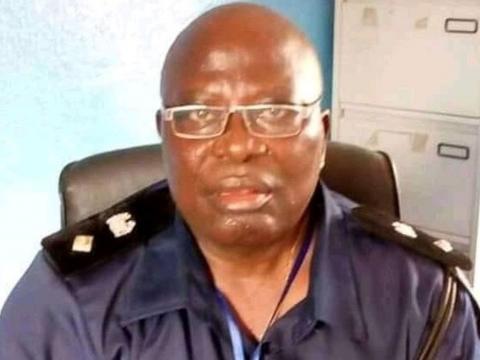By Mohamed Jaward Nyallay
The House of Parliament and the Sierra Leone Police have debunked the report of a corruption survey that was commissioned by the Center for Accountability and the Rule of Law (CARL). The Corruption Perception Survey, which was launched in April this year, listed Police and Parliamentarians as the top two most corrupt public sector workers.
The Police force was ranked as the most corrupt state institution by the report with 69% of people saying they believe to a “large extent” that the force is the most corrupt institution of the state. Parliament was ranked 4th with 47% of people saying the institution is to “large extent” corrupt.
Figures from the report shows that 83% of people believed the police were the most corrupt, followed by 60% who said Parliamentarians were the most corrupt. Government ministers were ranked 3rd with 52% of people saying they are the most corrupt.
In a statement released by Parliament on Saturday, they denied being corrupt and defended lawmakers, saying that they have acted honestly and with integrity whiles doing their job.
“Parliament abandons its stance for improved conditions of service; having in mind it is the least paid Parliament in the sub-region. Parliament concedes and listens to the cries of the people in light of the economic reality, even though it has power under the Constitution in Section 74(4) to determine its conditions of service and the power of the purse. Parliament openly conducts its business both at Committee and the Plenary in the full view of the public; most times it is streamed live on radio, TV and other social media platforms,” the statement noted.
“The Parliament is accountable and answerable to the people of Sierra Leone,” it added.
Parliament has been repeatedly accused of stalling or not doing enough to tackle corruption in government. The house has been accused for years of shoving aside the annual Audit Report.
A report launched by the PFM Consortium around the same time last year showed that the country lost between Le10 and 15 trillion to corruption alone since 2016. Most of these losses were documented in annual audit reports.
CARL’s report is part of the Public Financial Management (PFM) Consortium with other non-governmental organizations like Christian Aid, Restless Development and Budget Advocacy Network. Their work was sponsored by DFID.
The Deputy Head of Media at the Sierra Leone Police, Saio Conteh, told Politico that the report is an “unfair” characterization of the force. He challenged the methodology that was used whiles saying the Police has internal systems and has been working with the Anti-Corruption Commission on different campaigns.
“We don’t know the methodology that was used or the benchmarks to do the report, but we can proudly raise our hands and say we have never been investigated even by the numerous Commissions of Inquiry that this country has had. The Anti-Corruption has never accused the Police as a force that we are corrupt in a way this report is portraying us,” he said.
Talking about internal mechanisms, ASP Conteh said they have the CDIID, an internal unit that investigates police officers for wrongdoings. He stressed that the Police is an easy target because they interface with the people more than many other public sector workers.
Jeremy Ben Simbo, Project Coordinator for the PFM Project at CARL, defended the methodology that was used. He said the data was independently gathered, analyzed and verified by experts and heads of institutions.
“In doing this survey, we spoke to about 2,690 people in all the 16 districts of the country. In doing so we spoke to women, trade unionists, people with disability and other people that are in public and private sector institutions. We hired consultants to draw the survey tool. We had people from the Anti-Corruption, business leaders, public servants, donors, political parties, CSOs and consortium partners,” he explained.
Simbo also said 21 key informants were also interviewed, apart from the survey data, and all the raw data was then handed over to the consultants for analysis.
As part of the recommendations in the report, Police were advised “to reduce the burden of corruption when ordinary persons engage the Police, bail and traffic issues should be robustly targeted with anti-corruption prevention, detection and enforcement strategy.”
About Parliament, the report stated that even though perception about corruption on them is high, the House could play a key role in dealing with corruption among MDAs.
“Parliamentary oversight, especially by the PAC which is constitutionally mandated to follow up on audit reports, must be targeted to help them carry out these oversight functions,” the report stated.
Copyright © 2020 Politico Online








